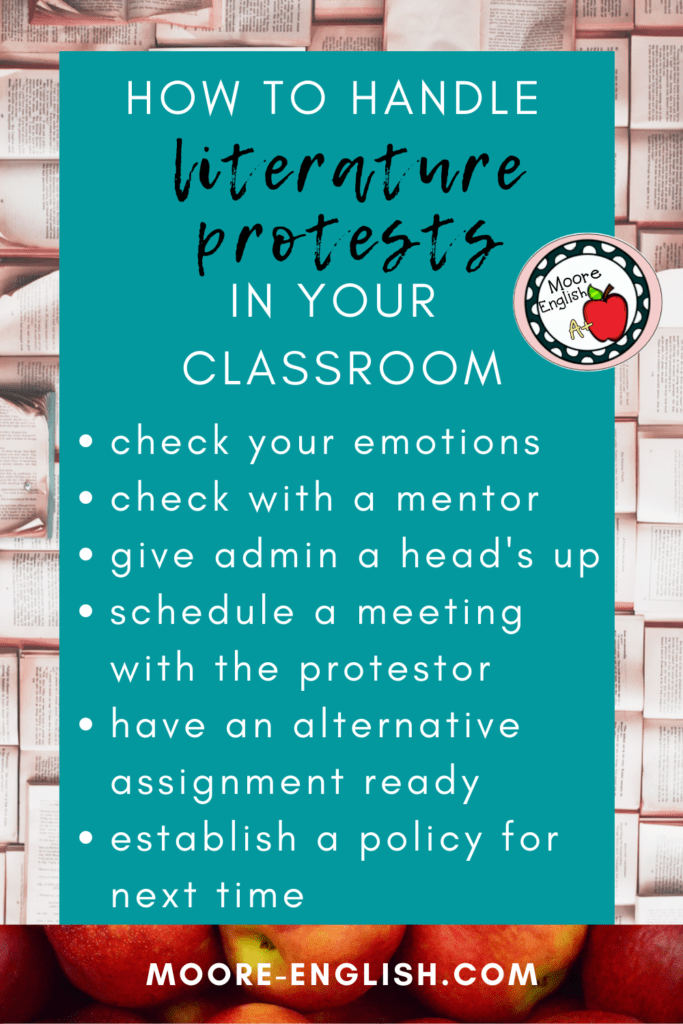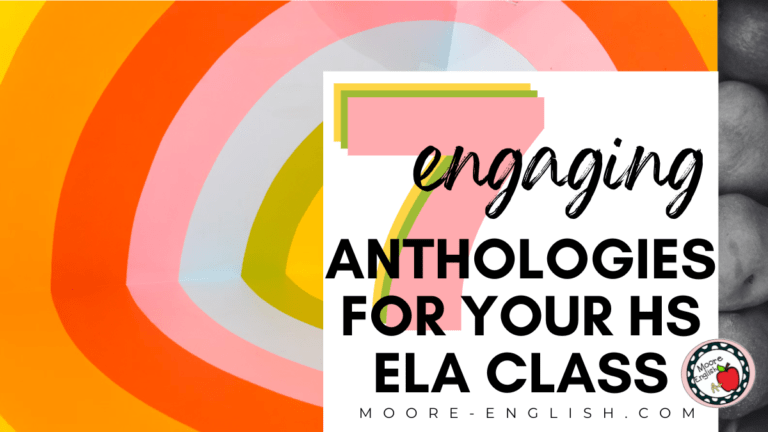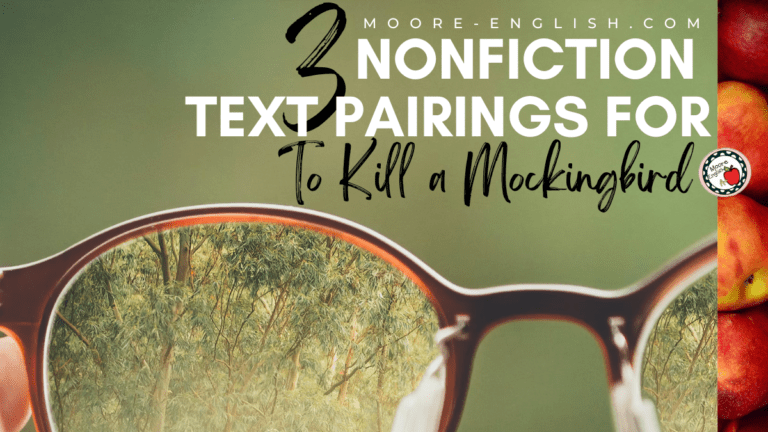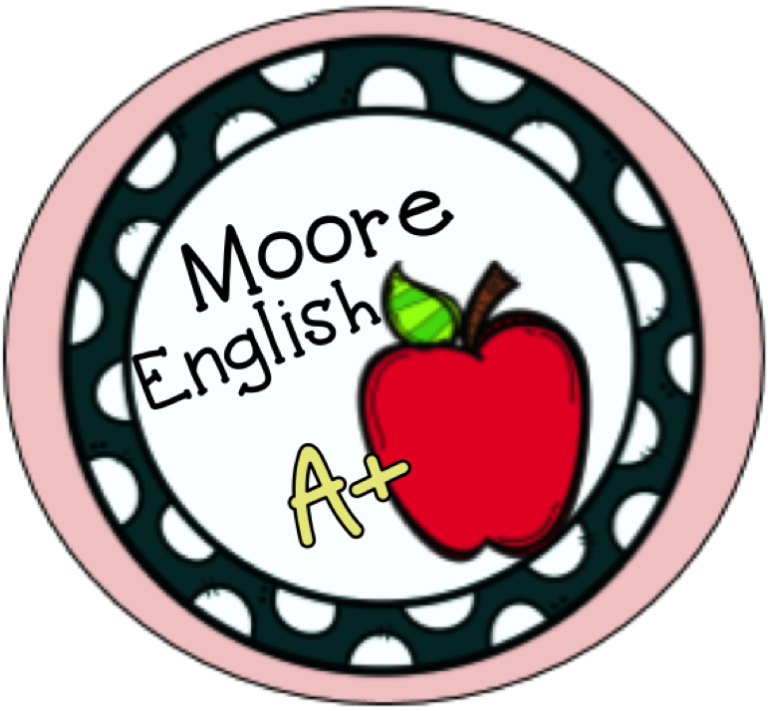Last week, one of my newer colleagues came to me after receiving a disgruntled parent email. In the email, the parent expressed concern about the witchcraft in The Crucible.
Of course, there are no witches in The Crucible. That’s kind of the whole point.
However, this parent concern gave my colleague and me time to walk through the best ways to handle such protests. So today I want to share some short-term and long-term responses to literature protests in your classroom.
This post this post may contain affiliate links. Please read the Terms of Use.
Short-Term Responses to Literature Protests
If you, like my colleague, receive an email or call about a literature protest on Monday afternoon, you need a response by Tuesday morning at the latest. In this situation, there are a few things to do.
First, check your emotions. With The Crucible protest, my first response was inappropriate laughter. On another day, I might have been outraged. When talking about sensitive subjects, neither one of those responses would have helped the situation. For this reason, please give some space and time before responding. It’s better to take some time and be thoughtful in a response rather than being quick and burning bridges. At the end of the day, it’s likely someone thinks they’re looking out for kids rather than someone pushing an agenda.
Second, check with a mentor teacher, team leader, or department chair to see if there is protocol or a process in place for this situation. A mentor figure or teacher leader will probably also have some good advice for managing literature protests. They’ve probably been in the same situation, so use their experience to your advantage.
Third, give an administrator a head’s up. Oftentimes, when a literature protest is made, the protestor starts at the highest level. In those cases, this is going to become a bigger issue and will probably land in someone else’s lap. However, if the “protestor” (a parent, student, or other stakeholder) begins with you, let an administrator know in case things go sideways.
Next, set up a time to talk with the protestor. A phone call, virtual conference, or in-person chat is always better than an email chain. Listen to parent concerns and ask questions so you can understand exactly what aspects of the text are objectionable. Be prepared to explain how sensitive subjects will be handled in class. Clarify your classroom expectations for conversations. Also, be prepared to explain what alternative options are available and what that looks like.
Establishing an Alternative Assignment
In the case of the parent concerned about The Crucible, a phone call with the teacher assuaged their concerns.
It’s also worth recognizing that a lot of the literature students encounter could be perceived as controversial. That’s the nature of good literature: it should be thoughtful and challenging. The very best literature should help readers grow and learn, but it can only do that by introducing discomfort.
However, not every literature protest ends with a handshake. Sometimes the protest moves above your head, and that’s when it becomes important to have clued in your principal.
Other times, it’s necessary to provide an alternative assignment. When this happens, here are a few details to keep in mind:
- Firstly, have a menu of titles ready to offer as an alternative. If you chose a reading for your class, you probably had a reason. It’s likely there was a standard, concept, genre, etc. that you needed to address. If students just choose a random independent reading book, there’s no guarantee they will touch the key ideas or details you originally had planned.
- Secondly, begin to brainstorm how you will help the student experience the same learning opportunities as their peers. A literature protest can’t prevent a student from developing skills or having meaningful learning experiences. This may require some creativity on your part, and this is also a great time to collaborate with other teachers.
- Similarly, I find it really helpful to establish some kind of personal quick check for your student. A daily check-in at the door, on a Google Form, or at the end of class can help you communicate to your student that you still value them and don’t hold a grudge because of the literature protest.
- Finally, plan your response to your class. Eventually, another student is going to point out that Carrie Bradshaw is reading a different book than everyone else. Rehearse your version of “Mind your business.”
Long-Term Solutions to Literature Protests
Over the years, I have become a big fan of clear procedures and policies. I teach in a large department with significant turnover, so procedures and policies help keep everyone on the same page.
Talk to your team leader, department chair, or principal about establishing a procedure or policy for handling literature protests. Chances are that your school board already has some kind of policy in place that you can adapt for your team or department.
Similarly, it’s helpful to have a few alternative assignment titles on hand for each grade level. For example, the same person who protested the witchcraft in The Crucible as a junior is probably not going to like the witches in Macbeth any more when they are a senior. However, that student shouldn’t do the same assignment both years, so outlining the menu of titles and aligning it to each grade level will prevent text and assessment overlap.
Finally, encourage your librarians to emphasize Banned Books Week! Discussing censorship in this context can help students develop the language they need to talk about literature protests (whether they are making a protest on their own or if one is being made on their behalf). More often than not, I find that students roll their eyes when their parents issue a literature protest on their behalf, but I also find that those students struggle to explain why they want to read a certain text.
How do you handle literature protests in your school or classroom? What other strategies should we include?


Images from engin akyurt, Will Porada, and Fred Kearney











